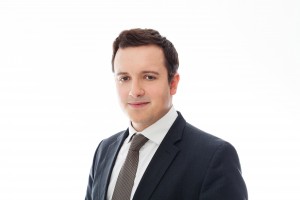 Speaking at the 2015 International Trade Observatory summit in Dubai, Ludovic Subran, Euler Hermes chief economist, urged delegates to speak to an economist, before forming an opinion on the news stories.
Speaking at the 2015 International Trade Observatory summit in Dubai, Ludovic Subran, Euler Hermes chief economist, urged delegates to speak to an economist, before forming an opinion on the news stories.
On behalf of those who don’t have easy access to an economist, Business Today took up the challenge and posed the biggest news-based assumptions of 2015 to Subran.
Here is his insight:
“Saudi Arabia is running out of money”
This will certainly not happen. A country does not run out of money and Saudi Arabia currently has very low debt obligations so if – in need – it could approach financial markets and find plenty of offers forthcoming at reasonable rates. With foreign assets of around USD700bn Saudi Arabia has a financial cushion to make adjustments.
“Dubai will experience another crash before 2020”
Although some lessons from the debt problems of 2009 to 2010 have been learnt, the construction and real estate sector has the potential to form another bubble. This is unlikely to cause problems in the short term, given the general impact of weaker oil prices on the regional economy.
The period to 2020 will provide many uncertainties, so it is impossible to say for sure that something will or will not happen. At this stage, we consider a “crash” – as opposed to a market correction – unlikely.
With more certainty, we would say that Dubai is partially protected by its inclusion within the UAE. The Emirate’s sovereign wealth fund is $180bn, where are Abu Dhabi’s is at least $1,000bn. Dubai is highly unlikely to stand alone.
“Qatar’s economic ambitions are unsustainable”
In per capital terms, Qatar is one of the wealthiest countries in the world and has already shown its plans to host global events, such as the 2022 FIFA World Cup, as well as the extension of its presence in world cultural showcases. All this is based on, in particular, earnings from gas exports. With weaker demand for energy and more global competition coming onstream, relatively lower revenue growth can be expected.
However, with substantial financial assets, including a sovereign wealth fund of $256bn, it can continue to follow its “ambitions” for quite some time. If it has to scale back on some of these it will – again there is scope for adjustments.
“Oil prices will never rebound”
After following oil prices for a lengthy period I can certainly say that the word “never” is inappropriate.
Prices next year will be lower than in the period 2011-Sept 2014 (indicative prices >$100/barrel) because a combination of weaker demand and strong supply will take time to work through the system. Market forces will allow a rebound further out but for the next three years the $100/b target seems unrealistic – unless, of course, there is a severe disruption to a major supply centre.
“Competition GCC infrastructure projects undermine the economic capacity of each other”
Never underestimate the power of infrastructure improvements to foster domestic growth and international commerce. For sure, there will be some competition – which is not a bad thing in itself and frequently leads to more effectiveness and efficiency – but this is not a finite numbers game; there is scope for all to benefit.
“Iran will be the region’s next super power”
Assuming the nuclear and sanctions deal both holds, and is extended over a protracted period, then Iran will become a more significant regional player. “Super power” may be too strong terminology.
Arguably, Iran already is a significant regional force, with extensive interests in Iraq, Syria and Lebanon. The P5+1 deal gives it the chance to extend its economic reach and while Saudi Arabia, in particular, will be wary of Iran’s potential there will also be some regional benefits – Dubai as an entrepôt centre could see significant additional trade flows involving Iran.
“The UAE must nurture its creative and tech industries”
This should happen in two ways: Improve on human capital to therefore boost education and training, followed by spending on R&D.
In relation to education it is important to move away from rote learning and foster a culture of thinking outside the box. That helps promote innovation. In relation to spending on R&D, this needs to be directed effectively and also requires the appropriate legal and business environment to be created.












